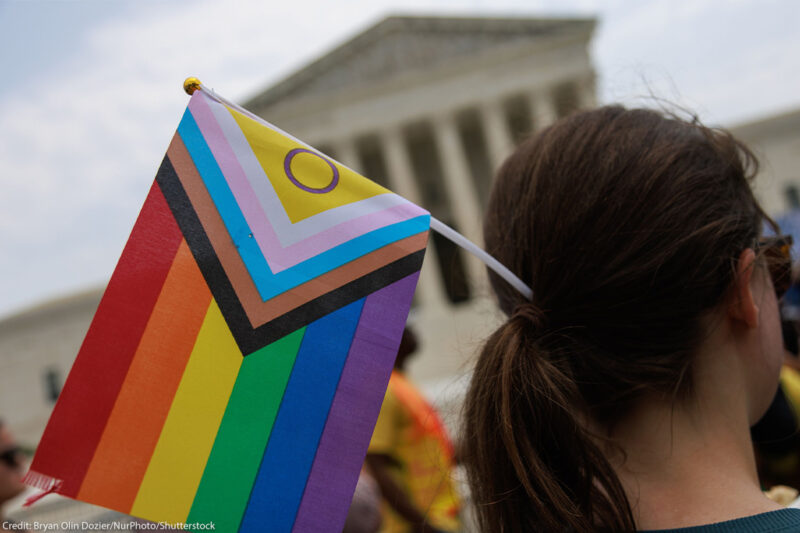

By David M. Greenwald
Executive Editor
Davis, CA – This weekend the Vanguard made the decision to publish Beth Bourne’s response to Robert Bulman’s December op-ed in the Enterprise.
Bourne it seems took issue with the notion that there is an “anti-gay” agenda for Moms for Liberty. She calls the charge unfounded and argues that “in fact, one of the group’s top leaders is lesbian, the organization has gay chapter chairs including in California, and some chapter chairs have gay kids.”
While I think Robert Bulman’s response pretty much blows Bourne’s argument out of the water, I do want to emphasize and add a few observations of my own.
As Bulman points out, “One argument that Ms. Bourne makes in response to my Op-Ed is that because some gays and lesbians are opposed to transgender rights that Moms for Liberty, by the transitive property, is not anti-gay. However, such an ‘argument’ doesn’t begin to logically counter the points I made in my original piece.”
He adds, “Such a response is akin to those who point to African Americans who support Donald Trump as an ‘argument’ that Trump is not racist. But let’s move to a more  substantive piece of her argument.”
substantive piece of her argument.”
Indeed, the old refrain used to be, I can’t be racist, I have Black friends. The argument of course ignores the role of social difference where the familiar take on individual rather than group characteristics.
It’s kind of like saying you can’t be sexist, because you’re married. Everyone knows that’s patently absurd.
Having gays in a group isn’t a defense from the charge of being anti-gay IF in fact one can be shown to be anti-gay.
Indeed, Bourne eventually shows her true colors in a give and take on Facebook.
She asks the question: “why do you think 36% of Davis 7th graders believe they aren’t heterosexual?”
She doubles down, saying “why is it homophobic to ask the question why are 40% of Davis 7th graders identifying as LGBTQ when the US average for this age groups is closer to 10%? What do you think explains this phenomenon?”
I mean, she didn’t even have the decency to add, as any good Gen-Xer would, “Not that there’s anything wrong with that.”
Which of course begs the question—if there’s nothing wrong with that, why do you want to know? Which of course suggests that she indeed thinks something is wrong with that.
This is the whole problem.
She attempting to make an argument that students are being indoctrinated in DJUSD. And clearly from her question, she is making the same argument for gays as she is for the issue of transgender individuals.
Indeed, she writes that a “sensible statement of our position can be found on the website of Gays Against Groomers: We stand against ‘the recent trend of indoctrinating, sexualizing and medicalizing children under the guise of “LGBTQIA+.”‘”
Given the loaded terms like “groomers” and “indoctrinating” I am unsure how you can really complain when someone calls you anti-gay.
I would also be remiss if I didn’t point out that, just as Bourne is guilty of bad data analysis on her conclusions about transgender in the schools, she’s making the same sloppy mistake with respect to gays.
Leaving aside the validity survey—she asserts that 36 percent of Davis seventh graders believe they aren’t “heterosexual.”
Well that’s not exactly true. While 64 percent say they are “straight” the other 36 percent is an improper aggregation of responses by Bourne.
It is true that five percent say they are gay or lesbian, while ten percent say bisexual.
But the rest is less clear: Four percent say “something else,” whatever that means. Eleven percent are not sure (we are talking about seventh graders after all) and five percent simply declined to respond, but according to Bourne that means they believe they aren’t “heterosexual.”
That’s an appallingly dishonest aggregation. It’s hard to know exactly how much weight to give these responses without a fuller evaluation. It is unbelievable, however, to equate uncertainty—the last three fields—with the definitive declaration that these categories definitively believe they aren’t heterosexual.
I would argue that far from indoctrination these results demonstrate the opposite—that the community allows teenagers the freedom and space to figure out who they are without judgment and ridicule.
This is abundantly clear from the next question—89 percent of 7th graders say they are NOT transgender. Only three percent say they are. Four percent are not sure and three percent declined to respond.
From that, Bourne concludes that 10 percent of seven graders believe they could be transgender. You cannot make that conclusion from that data.
It also seems to weigh against the indoctrination thesis—after all, if students are really being indoctrinated, why are 89 to 92 percent of students immune to that indoctrination?
But back to my main point—if you aren’t anti-gay, why does it matter to you that a sizable percentage of students think they might be gay?

